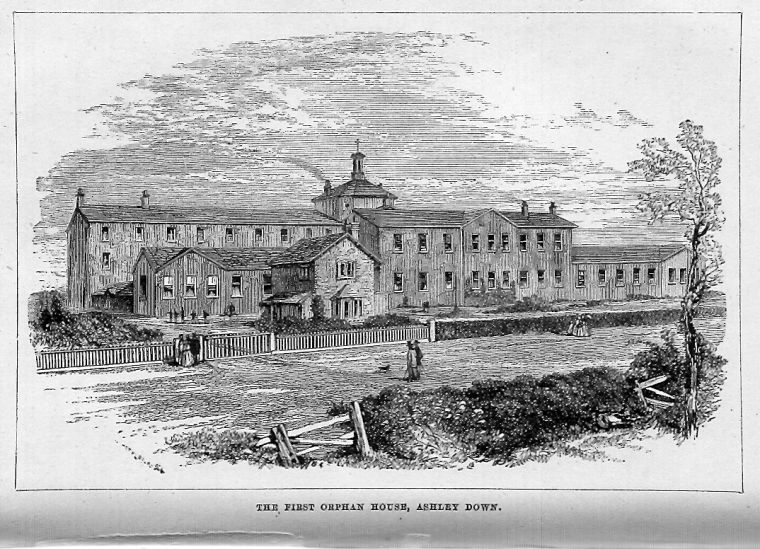Prayer warrior and prophet for the poor: 5 things you didn't know about Christian missionary George Müller
Today is the birthday of 19th century missionary George Müller, a passionate prophet against poverty, an advocate for orphans and an enduring emblem of radical trust in God. Here are five things you might not know about his remarkable life.

1. Unholy origins
Although now revered as a saintly Christian figure, Müller's life did not begin that way. He was born in 1805 in Kroppenstedt , a village in the Kingdom of Prussia, modern-day Germany. He was a liar and a gambler and was stealing from his tax-collector father at just age 10. He would later describe his own 'wicked behaviour and unrepentant spirit' that continued into his time as a Bible College student. Despite his 'sinful lifestyle', Müller would later reflect: 'God had mercy on me'.
He initially saw Christian faith as something only to be mocked, but his life was changed by a prayer meeting through which his 'cold heart' began to warm. Moved by the community and their love of God, he was soon on his knees seeking forgiveness. From here on it's said the Müller became a new man, and in time he felt a call to become a missionary to England.
2. The Father's heart
Perhaps his most enduring legacy, both in and outside of the Church, is the orphanages that Müller established. In 1836, he and his first wife Mary decided to rent their home in Bristol to 30 orphan girls. Their service expanded with the opening of more houses, and ultimately comprised five orphanages that by 1970 were housing 1,722 children. Müller's efforts served more than 10,000 orphans over his life. He was also a passionate advocate of education who established 117 schools throughout his life, serving more than 120,000 children.
He joined in a strong legacy of Christian adoption and ministry to the orphaned, rooted both in the cry of Old Testament prophets and the faithful fatherhood of God himself.
3. Prophet for the poor
Müller stood up for the poor and oppressed at a time of stark social inequality, exacerbated by an epidemic of cholera. Poverty could often hit children the hardest, hence his concern for orphans. Consistently, Müller challenged the Church on its attitude to riches and class. He opposed the practice of renting out church pews to the wealthy, while the poor of the congregation were forced to sit at the back.
Müller pointed to the lesson of James 2: 2-4, which says: 'Suppose a man comes into your meeting wearing a gold ring and fine clothes, and a poor man in filthy old clothes also comes in. If you show special attention to the man wearing fine clothes and say, "Here's a good seat for you," but say to the poor man, "You stand there" or "Sit on the floor by my feet," have you not discriminated among yourselves and become judges with evil thoughts?'
As for his own finances, Müller refused a salary, instead trusting God to meet his needs through unsolicited gifts. And from what he did receive, he gave most away. He wrote: 'Money is really worth no more than as it can be used to accomplish the Lord's work. Life is worth as much as it is spent for the Lord's service.'
4. Seeing miracles
Various stories attest to a miraculous provision surrounding Müller's life. The most famous story may be one that sees Müller faced with 300 children at his orphanage, hungry with nothing to eat. Confident of the provision to come, he told them to be seated in the dining room where they would be served. Suddenly, a baker appeared at the door, convicted that he should bring bread to Müller and producing three batches as a gift.

He was followed by a milkman, whose cart had broken down in front of the orphanage. The milk would go off in the time it would take to fix the vehicle, so the milkman offered it to Müller, giving him 10 cans for the children. Another tale tells of Müller praying to lift a treacherous fog at sea. He told the initially sceptical ship captain: 'I have known my Lord for more than 50 years and there is not one instance that I have failed to have an audience with the King.'
5. Radical trust
At the age of 70, he chose not to retire but take on a new adventure: a worldwide preaching ministry. Over 17 years he travelled over 200,000 miles, preached in 42 countries and addressed more than 3 million people.
When he died in 1898, the streets of Bristol were filled with mourners. Despite the mighty miracles and heroic humanitarian efforts to his name, Müller's legacy is also a humble and simple one. He trusted God to meet every daily need, and implored others that they could do the same.
He once wrote: 'Every child of God is not called by the Lord to establish schools and orphan houses and to trust in the Lord for means for them. Yet, there is no reason why you may not experience, far more abundantly than we do now, His willingness to answer the prayers of His children.'











